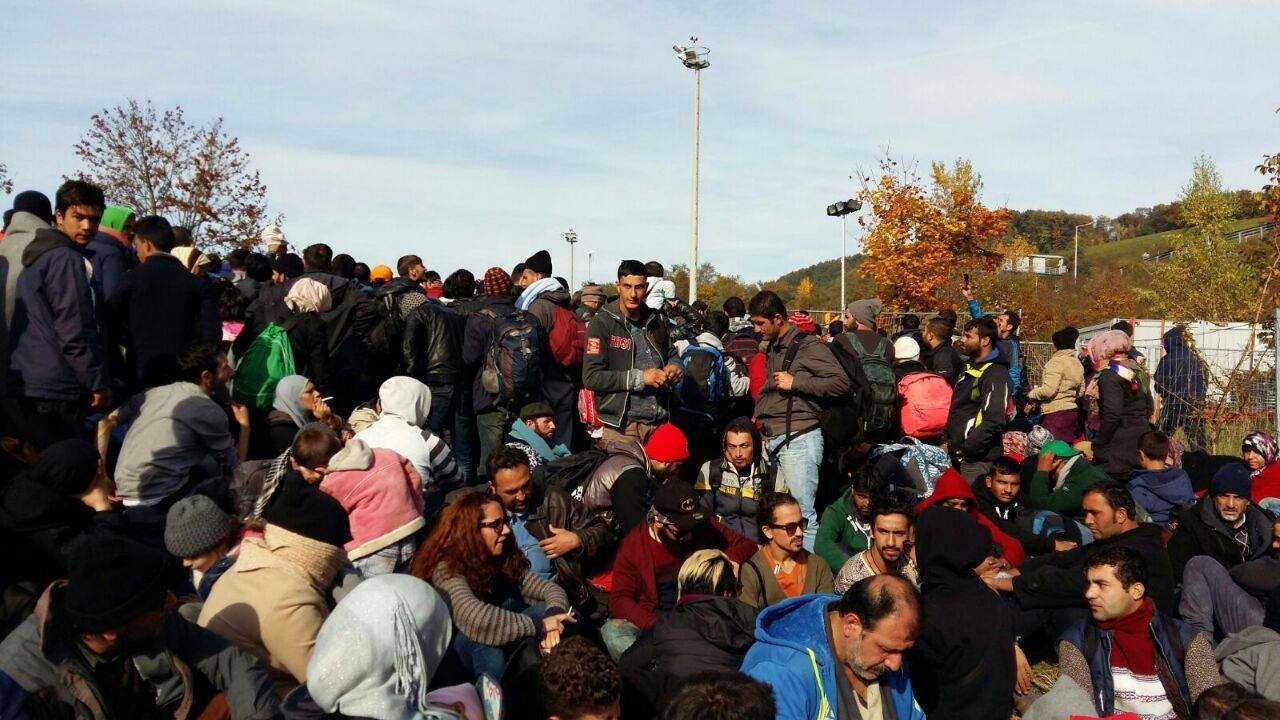In German exile, a polygamous Syrian refugee family split apart: ‘We don’t have a better option’
In 2016, 40-year-old Rami a-Saeed, his two wives and three […]
12 September 2017
In 2016, 40-year-old Rami a-Saeed, his two wives and three children made the perilous sea journey from Turkey to Greece before continuing onward to Germany in search of asylum.
But upon arrival in Germany, where the law forbids polygamy, the family could not stay together.
Today, a-Saeed’s family is split across two cities in Germany. His first wife, who registered with authorities as a single refugee, lives in the town of Essen. A-Saeed’s second wife, with whom he has three children, lives with him in the city of Moers, on the western bank of the Rhine river.
There was likely no way the family, who fled restive east Aleppo city in 2015, could have remained as one unit—even if they had chosen to wait for resettlement through the UNHCR, the UN’s refugee agency.
The UNHCR considers all members of polygamous refugee families as “eligible for assistance,” though it rarely agrees to handle resettlement cases for families like a-Saeed’s, according to an online guide published by the agency in 2011.
Muslim men in Syria and some neighboring countries are legally permitted up to four wives, despite a 2000 UN Human Rights Committee decree denouncing polygamy as “an inadmissible discrimination against women.”

Resettlement states, including Germany, prohibit polygamy, the UNHCR guide reads—although in rare cases a nuclear family may be resettled separately, and the marriage “would not be legally recognized.”
A-Saeed and his family bypassed the resettlement process by paying smugglers to take them to Europe by way of the Mediterranean. But today, the outcome for the family is much the same.
“I visit my first wife and check on her whenever I get the chance,” a-Saeed tells Syria Direct’s Noura Hourani from his home in Moers, using a pseudonym.
“I don’t know how long we will remain in this situation, but we don’t have a better option.”
Q: Were you aware that European countries forbid polygamous marriages before you left Turkey?
Yes, I learned from my friends about the laws regarding polygamous marriage. I also heard that there was a way to manage the situation despite the inevitable division of family members that would occur.
People in polygamous marriages register one wife and don’t notify the government about the existence of a second.
Q: How did you choose which wife to register with?
There was a dispute about that at first, I don’t deny it. My first wife insisted that she has the right to not be alone in a country she knows nothing about. My second wife defended her position for the sake of the children, whose care is the top priority.
I registered with my second wife, while my first wife registered individually, as if she were a refugee who left [Syria] alone.

It was an extremely difficult situation. No matter what I decided, I knew I would feel guilt towards the wife I did not stay with.
Q: Why did you decide to go to Germany and how did you make the journey?
Life in Turkey is difficult. I couldn’t find steady work and rent was expensive. Asylum was the solution—it meant a future for my children and [an escape] from the unknown.
I left with my wives and children in the “death boats,” as they became known to Syrians because of the number of victims who drowned while seeking a life.
[During the journey], I was overcome by fear, afraid that my children would die from drowning and the greed and deception of the smugglers. But at the same time, the situation we were living in was so tragic that it pushed me to take the risk.Q: Where are you living now? Are your wives living in the same city?
I am now in a city called Moers with my second wife and my children. My first wife lives in Essen.
Fortunately, the two cities are only approximately 30 or 45 minutes apart. I know other families [whose members] are living at great distances from each other, which makes visits very difficult.
Currently, I visit my first wife and check on her whenever I get the chance and stay with her for some time. I don’t know how long we will remain in this situation, but we don’t have a better option.







